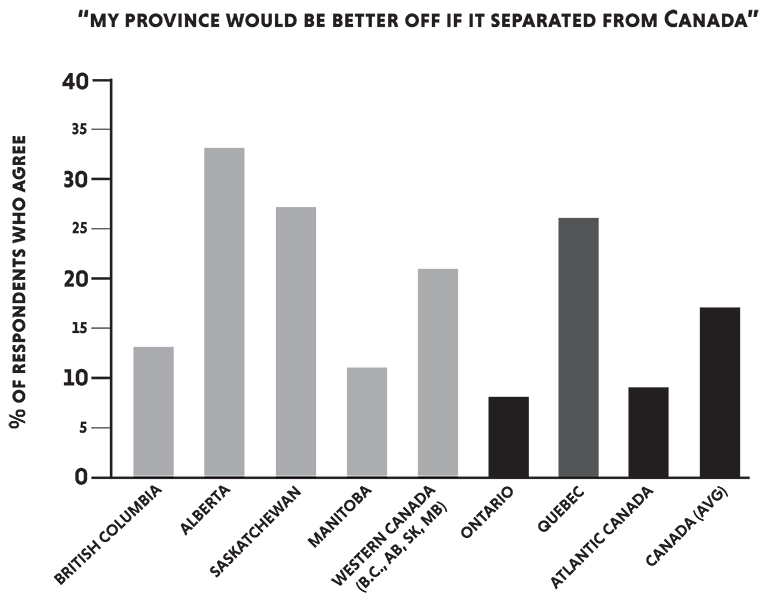In the wake of last month’s federal election, a new political movement called “Wexit” has emerged in Alberta and Saskatchewan which seeks to separate from Canada.
On Nov. 4, Wexit Alberta applied to become a registered political party after gaining the necessary 250 signatures required for approval. Peter Downing, the movement’s founder, claimed on CTV to have gotten over double that number.
A poll by Ipsos found that 33 per cent of Albertans and 27 per cent of people in Saskatchewan felt their province would be better off if it left Canada. This is more than Quebecers, only 26 per cent of whom had the same opinion. While Wexit will not be winning any referendums with these numbers, the level of support may come as a surprise to many.
On one level I sympathize with the sentiment, if not the actual goals of Wexit. For a long time, the western provinces have felt that the federal government, dominated by Ontario and Quebec, has ignored the needs and wants of the rest of the country. However, I find myself put off by the goals, strategy, and rhetoric of the Wexit movement.
Wexit’s supporters hope their movement will grow to embrace all the western provinces. The reality of the situation is that Wexit is mostly an Albertan (and to a lesser extent, Saskatchewan) phenomenon.
In fact, I find the whole concept of “Western Canada” in political discourse to be insultingly skewed. The narrative of Western Canada paints a picture of a solidly Conservative region with heavy support for, and reliance on, the fossil fuel industry. While that may accurately describe Alberta, it most certainly is not true of British Columbia, Canada’s westernmost province, and yet we are not included in this political concept of “the West.” In many ways, B.C.’s interests and values are in opposition to Alberta’s, especially where oil pipelines are concerned. B.C. and Alberta do not see eye-to-eye on many issues, and the West is a lot more complex than some people would have you believe.
So, why Wexit? I think Alberta has looked at Quebec’s history of separatist politics, seen that Quebec enjoys special treatment by the federal government, and thinks that if they do the same thing, Alberta will get special privileges as well. For instance, Alberta Premier, Jason Kenney, has floated the idea of leaving the federal Canada Pension Plan (CPP) and creating their own provincial pension system like Quebec has. “We are going to do for Western Canada, and Alberta in particular, what the Bloc Quebecois does for Quebec,” said Downing, who was quoted in a recent article in Macleans.
Here’s the thing though: this tactic requires political separation to be a credible threat. Canada came close to breaking up in the Quebec independence referendums of 1980 and 1995, the latter of which failed by only half a percentage point. Yet, if you believe the polls, only one in three Albertans believe that their province would be better off outside of Canada. With such limited support, I suspect Ottawa is likely to call Wexit’s bluff if push comes to shove.
However, let us suppose for a moment that Alberta and/or Saskatchewan did leave Canada. This would actually put the West in a worse position, since these provinces would still be landlocked, and it would no longer be the responsibility of, nor be politically prudent, for the Canadian government to help Albertans build a pipeline to the sea. With regard to that issue at least, separation would only make things worse for them.
I do not think Wexit’s founders and supporters seriously want or expect to gain independence. This is all just political grandstanding to spook the federal government into giving their provinces preferential treatment.
In my opinion, Canada is not in any immediate danger of losing provinces. However, the existence and popularity of Wexit illustrates a concerning trend in Canadian society. Frustration, partisanship, and disillusionment are setting in, and as a result, there is an increasing sense that we are not all on the same team, and that Canada is merely the state within which we live rather than the nation we are part of. If nothing else, that is something our leaders should be paying attention to.


